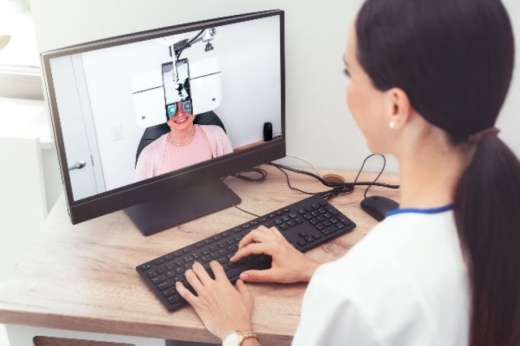John Raner, the company’s Dallas representative, said he has found that the way My EyeLab has long incorporated telemedicine into its services has equipped the business to continue serving patients safely amid the pandemic.
“So [with] your conventional eye exam, the doctor is usually within 6-7 inches of your face, and they’re that close to every single patient who comes through, which increases your risk of exposure to COVID-19 substantially,” Raner said. “So using our telemedicine system, we eliminate that risk entirely.”
At My EyeLab, patients come to the office as they normally would for an eye appointment. But unlike traditional ophthalmologist offices, My EyeLab conducts the refraction portion of its appointments through a telemedicine system.
This is the portion of standard eye appointments where an ophthalmologist typically stands close to the patient and flips through different images on a machine to gauge their eyesight, Raner said.
Raner said My EyeLab has been doing this for years, but it has become particularly valuable in the age of the coronavirus when social distancing is critical to safety.
“Some professions, like truck drivers, require regular eye testing in order for the drivers to continue working,” Raner said. “So there’s things like that which can’t be put off easily. Generally, patients have just been excited and relieved to be able to follow through with their appointments without being worried about COVID-19 exposure.”
Raner said that putting off preventive health care, such as eye exams, may not be a big deal if it is just a couple of weeks. However, when weeks become months, it can become dangerous for some.
“With a large portion of our population, as far as their eye care goes, that’s urgent for many people with diabetes or people who have to have those regular exams to keep working at their jobs,” Raner said. "So we’re happy that we've been able to maintain our services for everyone.”




